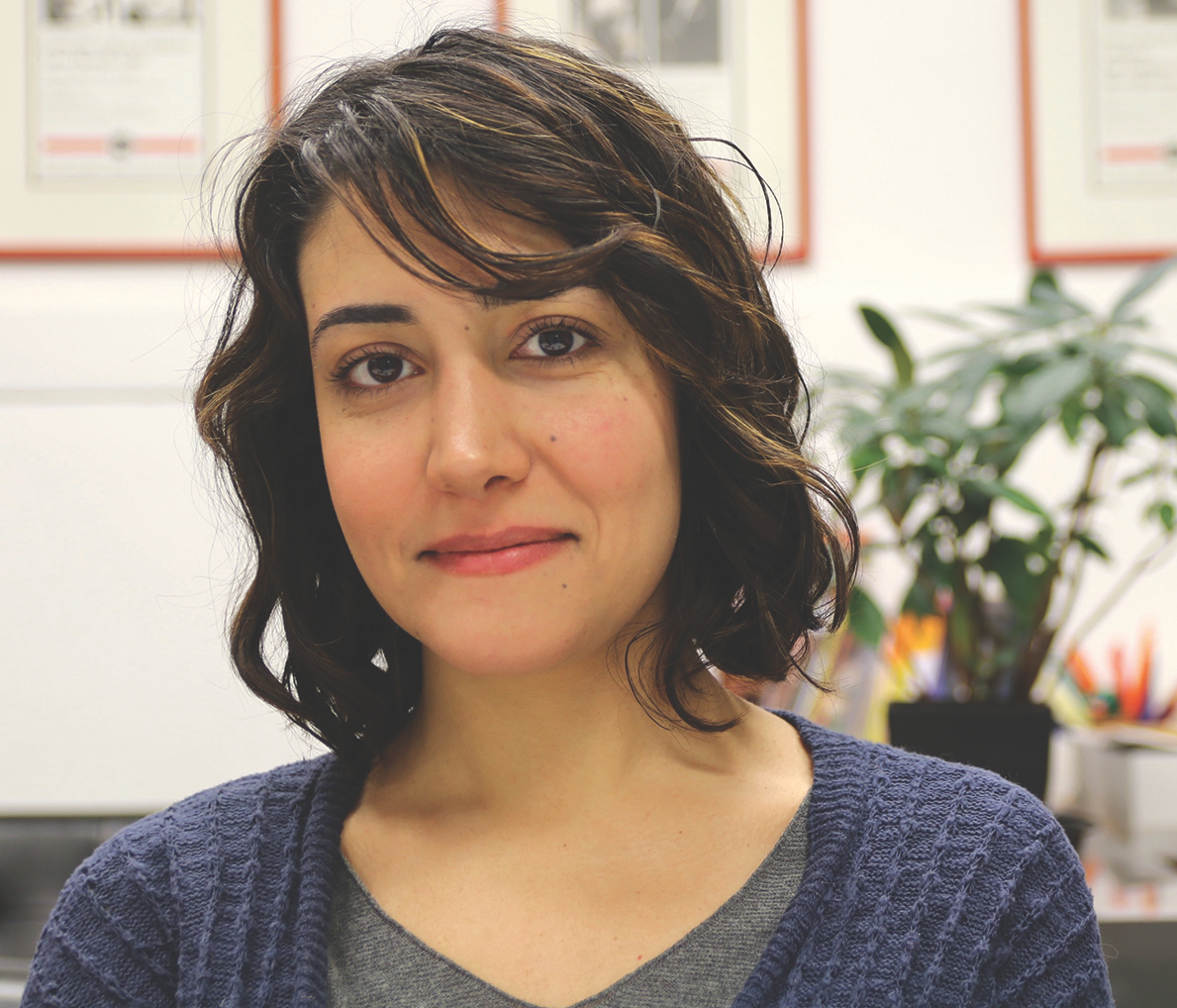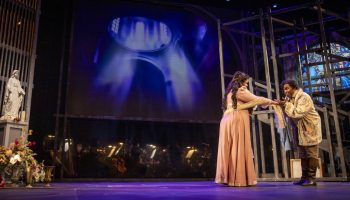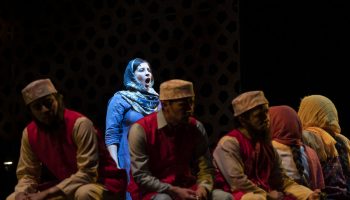She remembers it vividly: the color, the smell of the room.
At 13, she sat on the floor of her bedroom surrounded by paintings, pictures and drawings.
She hadn’t seen her friend in days. They usually spent a lot of time together. Her parents were close with her friend’s parents as well. They had grown up together, but no one was telling her anything.
Until that day.
She remembers looking up, looking out the window at the indigo sky, and standing up to cross the room to her piano.
“Music started pouring from my brain,” she said. “It wasn’t something I planned or anything. It was a part of me. In a sense, it was, for me, an outlet.”
After learning that her friend had slipped into a coma and then passed away, the only thing Gity Razaz could do was play.
This summer, Razaz is the Chautauqua Opera Company’s Composer-in-Residence.
Established last season, the Composer-in-Residence Program is a partnership with the American Opera Project that brings one alumni of AOP’s Composers & the Voice Fellowship to Chautauqua Opera for the entirety of its eight-week season.
As part of the program, Razaz has been commissioned by AOP for three pieces to be premiered during Chautauqua Opera’s season, the third of which will be presented at 3:15 p.m. Thursday in the Athenaeum Hotel parlor as part of Chautauqua Opera’s Afternoon of Song recital event.

The Iranian-born Razaz started playing piano when she was 7 and composed her first piece at 9, though at the time she didn’t know what she was doing was called composing.
“It was something that literally happened to me. I didn’t have any control over it,” Razaz said.
When Razaz was 15, her mother — a doctor whom Razaz describes as a bold, strong woman who “doesn’t fit into … Iranian culture” — took a job at Baylor University. Razaz and her sister moved to Houston with their mother. A few months later, Razaz found the American Festival for the Arts (now called AFA), a summer music school for second- through 12th-grade students.
“That’s where I had my first official composition lesson,” Razaz said. “I had never experienced before being in a school with kids my age and we were all composing. We could take what we wrote in the morning next door and the piano kids would play it. It was all very new to me.”
At times, however, she felt a bit out of place, like she was in a world that wasn’t hers. Growing up in Tehran more than 20 years ago, the opportunities for classical music instruction, let alone composition, were scarce. Razaz did have a teacher in Iran, who had studied in Turkey.
“Here in the U.S., you can start music in elementary school, but (in Iran) that (wasn’t) offered in schools,” Razaz said.
Despite the lack of resources growing up, the opportunities she found at AFA opened up a whole new world for her. Even though she felt slightly disadvantaged on occasion, Razaz received great feedback from her teachers at the school and was encouraged to keep going, to keep getting better. And it was at AFA that she realized composing was the path she was going to take.
“That’s where it became real for me,” Razaz said. “I realized that this is what I wanted to be doing for the rest of my life.”
Still, upon entering college, her confidence wavered. She came from a culture that is “very much into becoming doctors,” she said. So still battling some artistic doubts — doubts she said still persist to this day — she double-majored in pre-med and composition in piano performance at the University of Houston.
After two years, she decided she’d had enough of pre-med. She applied to, auditioned for and ultimately transferred to The Juilliard School. There, in addition to all she was taught on composition, she gained two of perhaps the most important lessons she’s learned.
The first was deeply and utterly human. She began to learn how to focus and direct the emotional energy that charges her work. She has become a stronger composer for it.
“I want to be able to say I’ve learned how to control those bursts of emotional responses (that motivate my work) so I can create art out of (them) and it’s not so wild,” Razaz said.
The second was more communal, showing her the importance of collaboration with other artists and musicians. This artistic evolution has framed the direction Razaz’s professional life, post-Juilliard, has taken.
“I feel like some of my most amazing experiences have been working with individual performers,” she said. “Big names or small doesn’t matter. Those are the ones that are most rewarding.”
After leaving Juilliard in 2012 with a master of music in composition, Razaz spent the next year serving as an adjunct professor of music theory and ear training at Ramapo College of New Jersey. It was a fun experience, she said, but lasted only that one year.
“I didn’t continue because, first and foremost, I wasn’t able to compose that year at all,” Razaz said.
Since stepping away from her professorship, Razaz has composed pieces for solo artists, full symphonic orchestras and everything in between. Recently, she completed work on a ballet score for the Theatre Ballet Moscow, again turning to the collaborative nature of musical expression she holds so dear.
That’s not to say that collaboration doesn’t have its stumbling blocks, especially when, within that collaboration, Razaz’s score becomes the secondary art form on display.
“When you go to a ballet show, you’re watching the dance. That becomes the primary art form,” she said.
Razaz sometimes has to change her score to better meet a choreographer’s requests. Although these requests don’t always make sense musically, it is in these moments that Razaz’s appreciation for artistic collaboration shines through.
“Sometimes you have to sacrifice the musical structure for something that makes sense for the dance,” she said. “If that (change) wasn’t there, it would ruin the dance. So it’s better to add that in there.”
Razaz does plan to return to and further establish herself as a composition teacher as her professional life grows. In teaching music and composition, she often finds a spark that informs her own compositions.
It’s no coincidence that teaching also gives her an additional chance to work with other musicians and artists. It is, after all, those musicians who inspire her own work.
“As a musician, you need the audience and you need performers to bring it to life,” she said. “Music needs to be heard. Otherwise, it’s this invisible thing.”




